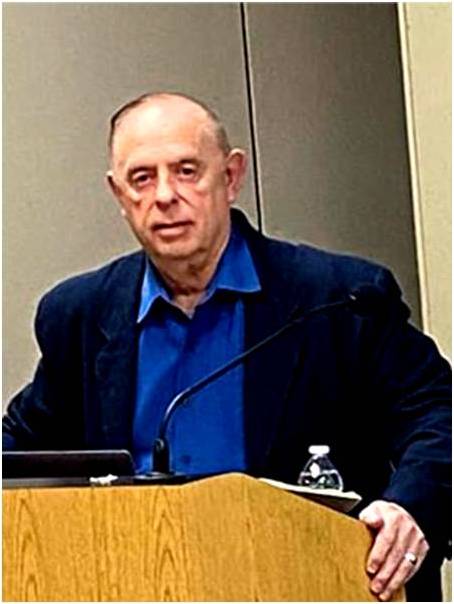Fort Lee, NJ, USA, 2020-May-15 — /EPR HEALTHCARE NEWS/ — In an exclusive interview with Practicomm, nationally recognized addictiveness expert provides valuable update on controversial addiction issues.

Q1. In light of the Coronavirus pandemic, it appears that people who were not addicts could become addictive just from being quarantined? Do you think that would be a large number of new addicts?
Our “Basic Survival Thinking†is mostly negative and being quarantined produces increased life stresses such as, unemployment, financial loss, fear of death, forced isolation and mental illnesses. During the pandemic, there has been an increase in alcohol consumption (as well as other substances) to blunt the negative thoughts. Also, there was an increase in sugary-high carb “comfort foods†used to stimulate positive feelings through the increased production of neurotransmitters like dopamine and serotonin.
But in fact, almost all the Covid-19 deaths are directly related to our addictiveness to high carb, processed food and the abuse of drugs, alcohol, tobacco, especially high blood sugar, diabetes and high blood pressure, which compromise the immune system. In brief, “Yesâ€, there will be an increase in addictiveness to try to relieve the pressure and mental stress from this pandemic
Q2. Some people say that smoking is a worse addiction than alcohol and drugs. Is that true? If so, why?
Smoking leads to strong persistent cravings for more nicotine within minutes to hours of the last puff. Vaping allows nicotine to almost always “be in hand’ day and night, inside or out. Addiction to different substances varies with the substance and the individual, and is tempered by availability, legality, cost, social acceptance, the onset of health issues, age of user, and more. Smoking health issues usually develop later in life; products are readily available, and vaping is now cool and socially acceptable. Fortunately, tobacco products are banned in buildings and outside in parks, thus making it harder to use freely.
Q3. It seems that most addiction treatment centers have a high percentage of patients who are “cured†for only a small period of time before going back to the addiction. Is that a correct statement?
The LIFETIME tendency to relapse (recidivism) after treatment is still high. The “Post Treatment Cure†is, for most, a physiologic removal of the substance from the body; and, for a time, a psychologic re-education and respite for the client before entering the real world. The “Roots of Addiction†can start early in life and become deeply and unconsciously embedded over years, and can always be reactivated under stress. To achieve a lifetime cure, addicts must always be actively involved in their recovery, because life just doesn’t get easier. I have seen my clients relapse a number of times before being able to maintain sobriety; and, some who have relapsed after many years of sobriety.
Q4. Can addicts actually change the way they think? How would they do that if they could? Does this vary by the type of addiction?
Adult addicts can change the way they think if they have a strong Desire, Interest and Commitment to recover. But, being pushed into recovery usually doesn’t last long.
They must deal with the root causes of their addiction, as they can be reactivated during times of stress. For any addiction, they must fully commit and actively participate in their process of Detox, Treatment, Counseling, and follow up, remove people places and things, and have (or seek out) a strong support system which can help in stressful situations. The stresses of life will always be there and it’s the psychological aspect of addiction that can be persistent!
For more information on the root causes of addiction, visit  addictivenessdoctor.com and/or go to Dr.Balzani on Facebook.
Via EPR Network
More Healthcare press releases
